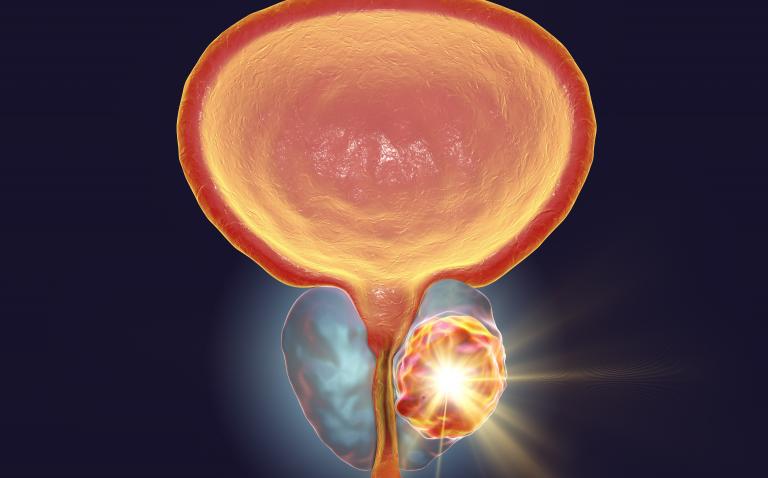Men with inflammatory bowel disease have four to five times higher risk of being diagnosed with prostate cancer, reports a 20-year study from Northwestern Medicine.
This is the first report to show men with inflammatory bowel disease have higher than average PSA (prostate-specific antigen) values, and this group also has a significantly higher risk of potentially dangerous prostate cancer.
About 1 million men have inflammatory bowel disease in the US. Inflammatory bowel disease is a common chronic condition that includes Crohn’s disease and ulcerative colitis.
“These patients may need to be screened more carefully than a man without inflammatory bowel disease,” said lead study author Dr. Shilajit Kundu. “If a man with inflammatory bowel disease has an elevated PSA, it may be an indicator of prostate cancer.”
Kundu is an associate professor of urology at Northwestern University Feinberg School of Medicine and a Northwestern Medicine physician. He also is a member of the Robert H. Lurie Comprehensive Cancer Center of Northwestern University.
The study was published in European Urology.1
In his practice, Kundu sees many men with inflammatory bowel disease who have elevated PSA tests.
“Many doctors think their PSA is elevated just because they have an inflammatory condition,” Kundu said. “There is no data to guide how we should treat these men.”
For the extensive study, researchers looked at 1033 men with inflammatory bowel disease and a control group of 9306 men without the disease. They followed the two groups of men for 18 years and found those with inflammatory bowel disease were much more likely to have prostate cancer and higher PSA levels.
Northwestern scientists are now working to understand the mechanism of how gut inflammation leads to prostate cancer.
Reference
- Burns JA et al. Inflammatory Bowel Disease and the Risk of Prostate Cancer. European Urology 2018; DOI: 10.1016/j.eururo.2018.11.039










